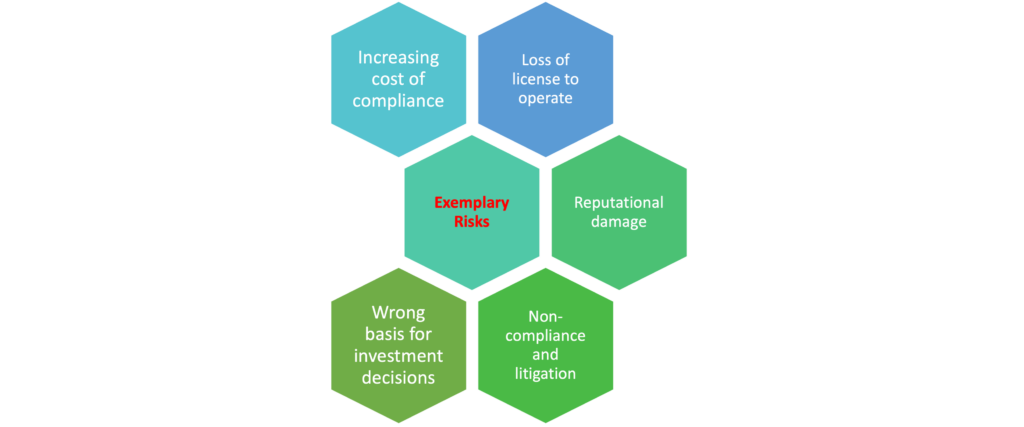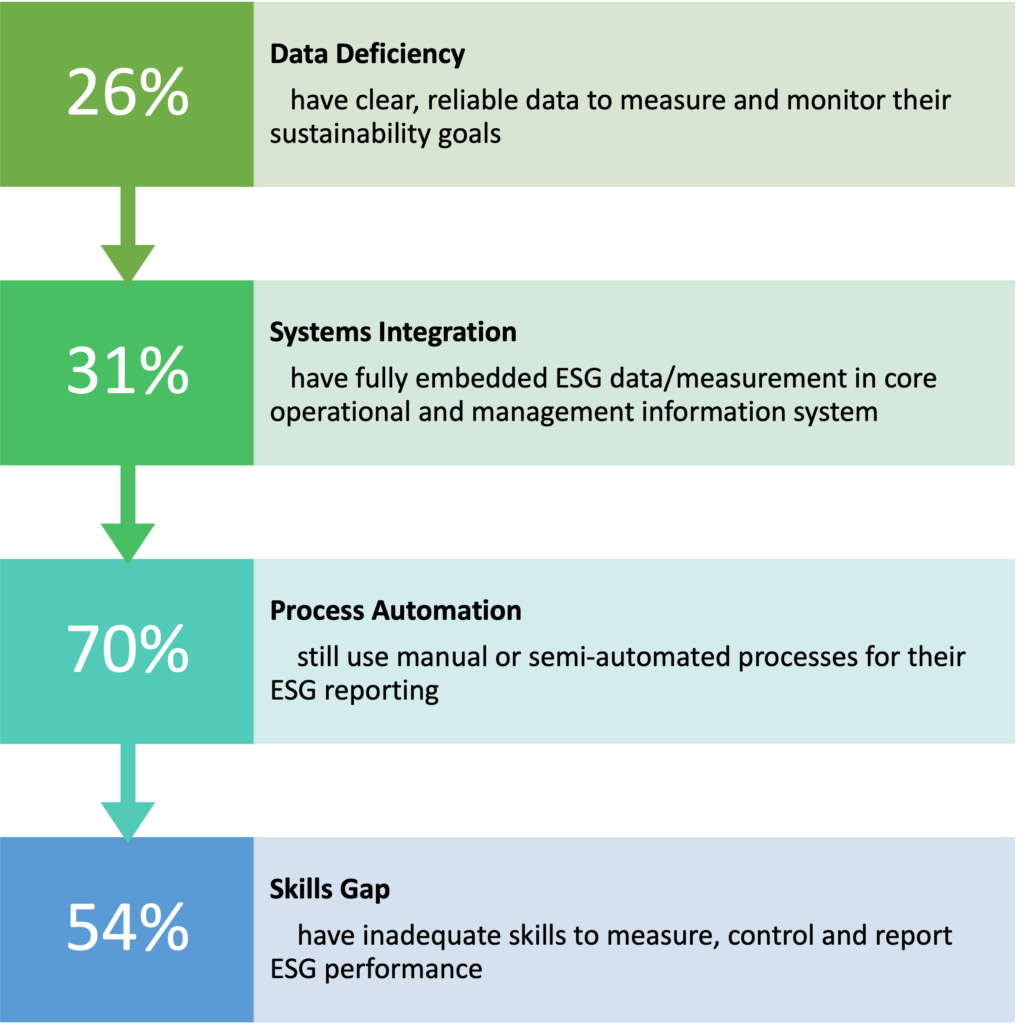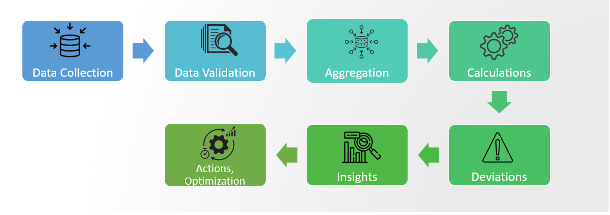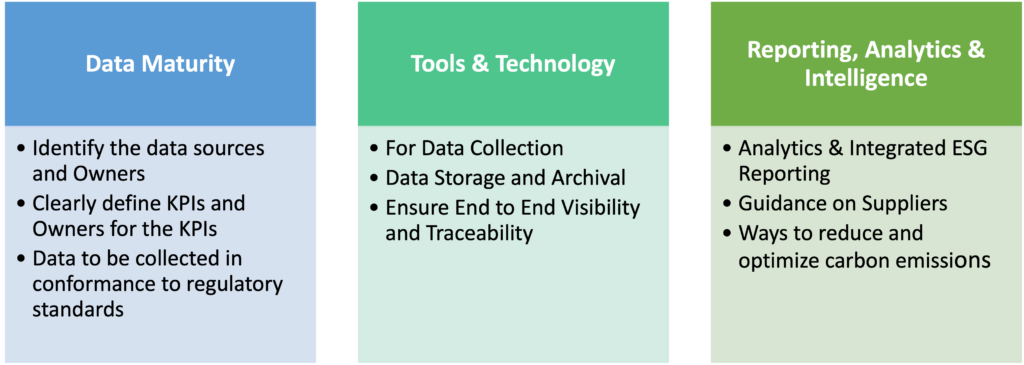
By Rekha Kodali and Vasantha Devanathan
The ESG disclosure landscape is rapidly evolving. Consolidation in the voluntary reporting space is accompanied by an increase in new and pending mandatory disclosure regulations globally. The challenges this poses has prompted companies to seek a more automated and streamlined way to capture, collect, store and report ESG data.
ESG Reporting
The realities of climate change are increasingly hitting home, regulations are rising, and environmental, social, and governance (ESG) assets are growing upward of 15 percent annually (Bloomberg, 2022).1 With all this happening, organizations are looking to quickly advance their own sustainability progress and opportunities but recording and reporting that progress remains challenging for many. Measuring and monitoring sustainable transformation at scale requires data-driven solutions.

Need for ESG Reporting
Reporting ESG goals is the need of an hour. Key reason for ESG reporting would be:

Challenges in Reporting Emissions
- Manual data sourcing from multiple business units, which generally source their data manually from a wide variety of 3rd party platforms and/or manual processes.
- Currently no enterprise-grade application for the automation of data collection, workflow, aggregation, and calculation of metrics, reporting or other ESG functions.
- Data collection, aggregation, and validation of GHG emissions is currently completed via Excel.
- Lack of standardization for data collection process.
- High time investment to complete ESG reporting.
Customers have to define their vision and strategy for ESG. They have to assess the data sources from which they will get the data from. Further data collection has to streamline. The data needs ot be validated, transformed. Calculation models have to be created where required. They will have to automate the reporting and then work on optimizing the emissions.
Here is a typical strategy organizations can leverage to build the foundation for ESG Reporting:

1. Data Collection: Provides an automated way to gather data from multiple sources.
2. Data Validation: Provides a way to validate various source data.
3. Data Aggregation: Provides a system of record for easy auditability and traceability.
4. Centralized and maintained Calculations: Includes customizable, and configurable calculation engine which allows the use of pre-built and custom calculations. Pre-built calculations and factors are maintained by Microsoft and certified by a third party to increase confidence in the results.
5. Optimization, Deviations & Insights: Provides insights and helps in identifying and tracking reduction initiatives with powerful out-of-the-box and custom visualizations for all scopes.
Foundation for ESG Reporting

A foundation needs to be built to come up with ESG Reporting. This includes collecting the right data, tools & technology to enable this data collection and reporting and analytics.
Conclusion
This approach will lay the foundation for future expansion of these solutions and more streamlined management of sustainability performance and reporting.
Key outcomes include:
- Automation leading to greater efficiency, data standardization, and lower risk of manual process errors.
- Greater reporting integrity and more efficient reporting processes across customer’s various voluntary and regulated disclosures
Rekha Kodali has more than 25 years of experience in Microsoft Technologies. Her focus areas include Azure, Enterprise Architecture, Sustainability, Composable Architectures, Presales and Innovation. She has been instrumental in creating differentiated solutions and service offerings. Her certifications include TOGAF, IASA certified Foundation Architect and Azure Solutions Architect Expert and several other MS certifications. She has published multiple research papers and published 2 books on Azure.
Vasantha Devanathan has more than a decade of experience across various technologies and Business Applications. Predominantly, skilled in Microsoft Dynamics 365 CRM as Functional Consultant and has experience in Functional Testing, Regression (RSAT) Testing, Automation Testing, Performance Testing, Security Testing across Banking, Healthcare, CMT verticals. Her current interest work area is Sustainability and Presales.
